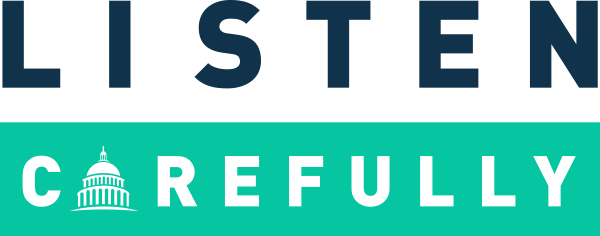
Rhode Island
Conversations are happening across the country to ensure safe, quality hearing assistance is available to those who need it. Check below to see what’s happening in Rhode Island.
Did you know?
15% of Rhode Island's population has some form of hearing loss.
Current consumer protection action
Rhode Island SB 2173: Requires audiologists and speech-language pathologists to obtain home state licensure
Summary: This measure requires audiologists and speech-language pathologists to obtain home state licensure for the privilege to practice. Home state licenses are recognized by each member state as authorizing the audiologist or speech-language pathologist to practice in each member state.
Member states are required to implement and utilize procedures for considering the criminal history records of applications for initial licensure. Applicants to practice under the compact are required to maintain licensure in their home state.
Upon application for the privilege to practice in a remote state, the licensing board in the remote state must be required to ascertain whether the applicant has ever held any encumbrances on their license or privilege to practice.
Member states may charge fees for granting compact privileges.
For the privilege to practice under the compact, audiologists and speech pathologists must be required to meet certain educational and experiential requirements and not be convicted or found guilty of a felony.
Audiologists and speech-language pathologists are required to comply with the practice laws of the state in which the client is located at the time the service is provided.
Individuals not residing in a member state are continually able to apply for member states’ single-state licenses as provided under the laws of that member state.
Licensees who move from one member state to another member state are required to obtain home-state licensure in the new member state and terminate former home state licensure to continue practice under the compact.
If a licensee moves from a member state to a non-member state, they may no longer participate in the compact but may practice in member states by obtaining a single-state license to practice and the state and maintain former home state licensure.
If a home state license is encumbered, the licensee will lose compact privilege in any remote state until the license is no longer encumbered, two years have passed, and all other compact requirements are met.
Member states are required to recognize the rights of audiologists and speech-language pathologists from conducting services in another member state via telehealth.
Active duty military and their spouses are permitted to practice under the compact by designating a home state where the individual has a current license in good standing. The individual can retain their home state designation while the service member is on active duty.
Only home states may take adverse actions against licenses. Member states, however, may take adverse actions against privilege to practice and issue subpoenas.
Member states may take adverse actions based on the factual findings of a remote state.
The compact is administered by a joint public agency known as the Audiology and Speech-Language Pathology Commission.
This measure takes effect immediately.
Status: 1st Chamber
Outlook: This measure was heard on March 14 in the Senate Health and Human Services Committee. This measure was held for further study.
This measure is eligible for further consideration in the committee of referral. A timeline may be established by the Chair.
During budget season the first motion in every committee meeting is typically to put all bills toward further study. This maneuver is used to entice members to cooperate on the budget. Once the budget is agreed upon, the flood gates will open in committees to release all of the bills moved to further study. This typically happens the last couple of weeks of session. Additionally, if leadership wants to pass a bill even if there is a day left in session, and even if it’s been “under further study,” it can easily be done; it is not out of the question for rules to be immediately suspended, a “committee meeting” to occur on a balcony, and then to pass the bill in both chambers in the timespan of 7 minutes.
Rhode Island HB 7197: This measure increases the minimum hearing aid coverage requirement
Summary: Starting on January 1, 2025, this measure increases the minimum hearing aid coverage requirement to $2,000 per individual hearing aid, per year, every three years, regardless of age.
This measure takes effect immediately upon enactment.
Status: 1st Chamber
Outlook: This measure was heard on March 19 in the House Health and Human Services Committee. It was held for further study.
This measure is eligible for further consideration in the committee of referral. A timeline may be established by the Chair.
Rhode Island SB 2085: This measure increases insurance coverage for hearing aids
Summary: This measure applies to hearing aids.
This measure increases insurance coverage for hearing aids from $1,500 to $2,000, per ear, every three years for all people regardless of age.
This measure is effective immediately.
Status: 1st Chamber
Outlook: This measure was heard on April 2 in the Senate Health and Human Services Committee. This measure was held for further study.
This measure is eligible for further consideration in the committee of referral. A timeline may be established by the Chair.
During budget season the first motion in every committee meeting is typically to put all bills toward further study. This maneuver is used to entice members to cooperate on the budget. Once the budget is agreed upon, the flood gates will open in committees to release all of the bills moved to further study. This typically happens the last couple of weeks of session. Additionally, if leadership wants to pass a bill even if there is a day left in session, and even if it’s been “under further study,” it can easily be done; it is not out of the question for rules to be immediately suspended, a “committee meeting” to occur on a balcony, and then to pass the bill in both chambers in the timespan of 7 minutes.
Rhode Island HB 7149: This measure regulates the provision of telehealth services
Summary: This measure regulates the provision of telehealth services, allowing practitioners to offer telehealth services to patients located in Rhode Island, provided these services are consistent with the practitioner’s scope of practice and comply with both state and federal professional standards.
The measure sets specific conditions under which healthcare practitioners can provide telehealth services to patients in Rhode Island. These conditions include the requirement that telehealth services must be consistent with the practitioner’s authorized scope of practice in the state. Moreover, the services must adhere to both state and federal professional practice standards.
The measure also details the obligations and responsibilities of practitioners providing telehealth services. It stipulates that these practitioners must comply with professional practice standards applicable to in-person healthcare in the state. This includes adherence to standards and laws relating to prescribing medication or treatment, identity verification, documentation, informed consent, confidentiality, privacy, and security.
Moreover, the measure addresses the provision of telehealth services by out-of-state practitioners. It allows these practitioners to provide telehealth services in Rhode Island, provided they register with the appropriate state board and meet certain criteria, such as having an active, unrestricted license in another state and carrying professional liability insurance.
The measure outlines specific regulatory procedures for dealing with registered practitioners who fail to adhere to the measure’s provisions. It mandates that these practitioners must have adequate liability insurance covering their telehealth services. Additionally, the act imposes restrictions on out-of-state practitioners registered for telehealth services, specifically prohibiting them from establishing physical offices or offering in-person healthcare services within the state of Rhode Island.
The provision of telehealth services, as per the act, is deemed to occur at the patient’s location, and the act includes provisions regarding the venue for civil actions arising from telehealth services.
Finally, the act allows boards to adopt rules and regulations for administering and implementing its provisions and emphasizes the need for uniformity in the law’s application across jurisdictions.
This measure takes effect immediately upon passage.
Status: 1st Chamber
Outlook: This measure was heard on February 8 in the House Health and Human Services Committee. This measure was held for further study.
This measure is eligible for further consideration in the committee of referral. A timeline may be established by the Chair.
Past consumer protection action
January 14, 2022. NAAG Responds to FDA’s Comment Request on New Over-The-Counter Hearing Aid Rules
“In response to a request for comments from the Food and Drug Administration (FDA) regarding new rules regulating over-the-counter hearing aids, NAAG submitted comments encouraging the FDA to take the below steps to ensure that states maintain a role as regulators in this emerging market.”
